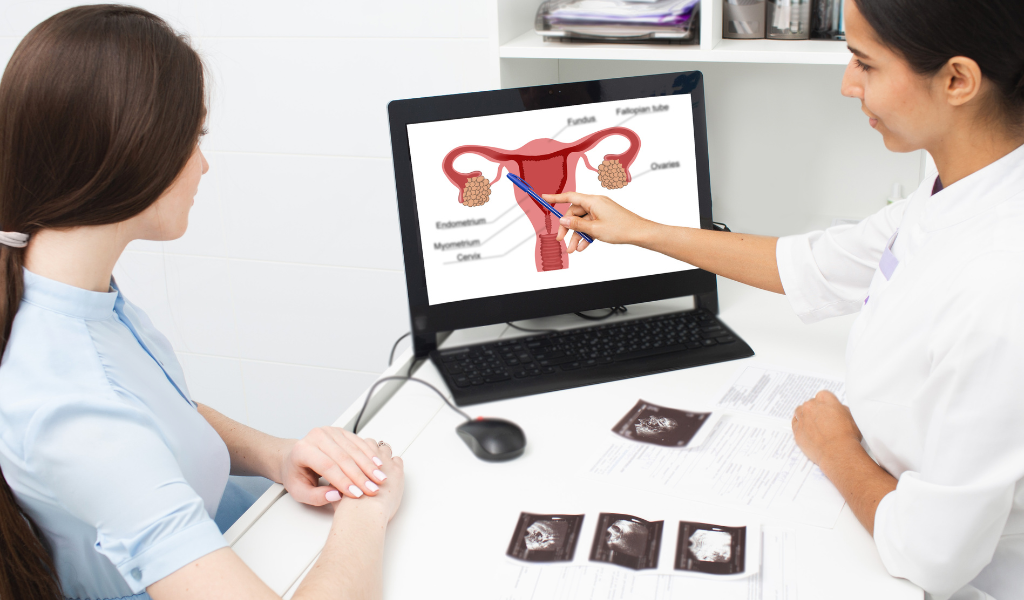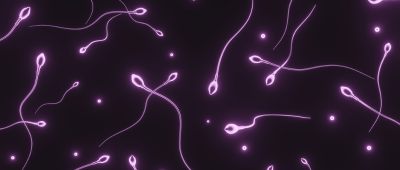Endometriosis is a medical condition where tissue similar to the lining of the uterus, called the endometrium, grows outside the uterus. When this occurs, the tissue responds to the menstrual cycle in the same way as the tissue inside the uterus, but because it has no way to exit the body, it can cause inflammation, pain, and the formation of scar tissue, commonly on the ovaries, fallopian tubes and other organs in the pelvic region.
Endometriosis affects millions of women worldwide, and one of its significant challenges is its impact on fertility. Some women with Endometriosis may conceive naturally, while others may face challenges. In this blog post, we will delve into how endometriosis can affect your ability to conceive and explore the various treatments available to help overcome the fertility challenges associated with this condition.

How Does Endometriosis Affect Your Fertility?
Understanding how endometriosis affects fertility and the available treatments is crucial for women who are trying to conceive.
- Adhesions and Scar Tissue Formation: The severity of endometriosis can affect fertility. Severe cases can lead to the development of adhesions and scar tissue in the pelvic region. These adhesions can interfere with the normal functioning of the reproductive organs by causing the fallopian tubes to stick together, becoming blocked or distorted, preventing the sperm from reaching the egg, or interfering with the movement of the egg through the fallopian tube. This can make it difficult for fertilisation to occur.
- Hormonal Imbalances & Ovulatory Dysfunction: Endometriosis is influenced by hormones, particularly estrogen. Women with endometriosis often have higher levels of estrogen, which can disrupt the normal menstrual cycle and impair ovulation. Women may therefore experience irregular ovulation or anovulation (when an egg does not release, or ovulate, from a woman's ovaries). These hormonal imbalances can affect the release and maturation of eggs, reducing the chances of successful conception.
- Inflammation & Immune Response: Endometriosis causes inflammation in the pelvic region, which can affect the quality of eggs. Chronic inflammation associated with endometriosis may negatively impact the reproductive environment, hindering fertilisation and implantation, even if ovulation was successful.
- Endometriomas: Endometriosis can lead to the formation of cysts called endometriomas in the ovaries. These cysts can cause damage to the ovarian tissue and reduce ovarian reserve, which refers to the number and quality of eggs available. Diminished ovarian reserve can significantly impact a woman's fertility.

Treatment options for endometriosis-related infertility include:
-
Laparoscopic Surgery: Laparoscopy is a minimally invasive surgical procedure used to remove endometrial tissue, adhesions, and cysts. This can improve fertility outcomes by reducing inflammation, restoring normal pelvic anatomy, and improving ovarian function. Surgery can also improve the chances of successful in vitro fertilisation (IVF) by creating a more favorable environment for embryo implantation.
-
Assisted Reproductive Technologies (ART): ART includes various fertility treatments that assist couples with conception. Intrauterine insemination (IUI) involves placing washed sperm directly into the uterus, bypassing any potential blockages in the fallopian tubes. In vitro fertilisation (IVF) involves retrieving eggs from the ovaries, fertilising them with sperm in a laboratory, and transferring the resulting embryos to the uterus. IVF can be particularly beneficial for women with severe endometriosis or those with other fertility factors.
-
Medical Management / Hormonal Treatments: Hormonal therapies, such as oral contraceptives, gonadotropin-releasing hormone (GnRH) agonists, and progestins, can help manage the symptoms of endometriosis and improve fertility. These medications can help to regulate the menstrual cycle, reduce endometrial implants, and decrease inflammation. They may also temporarily suppress the activity of the ovaries, which can alleviate symptoms and help improve the chances of conception.
- Fertility Preservation: For women with severe endometriosis who require extensive surgery that could potentially impact ovarian function, fertility preservation techniques may be considered. These include freezing eggs or embryos for future use, allowing women to have a chance of conceiving after their endometriosis has been treated.
It's important to note that the effectiveness of any treatment may vary depending on the severity of your condition and other individual factors. It is crucial that individuals with endometriosis who are trying to conceive, work closely with their healthcare providers. A fertility specialist can provide a personalised assessment and recommend appropriate interventions, based on the severity of the condition.
Conclusion
In conclusion, endometriosis may significantly impact a woman's ability to conceive due to scar tissue, adhesions, hormonal imbalances, inflammation, and the formation of cysts. However, many women with endometriosis do conceive successfully. Various treatment options are available to help improve fertility outcomes. Laparoscopic surgery, assisted reproductive technologies (ART), hormonal treatments, and fertility preservation techniques can all play a role in managing endometriosis-related infertility and help you achieve a successful pregnancy.
Dr Koita, a leading UK Fertility Specialist in London and our founder here at IVF Matters, has helped many patients who have suffered with PCOS, Endometriosis, tubal damage, fibroids or reduced ovarian function - all achieve their dream of starting a family.






